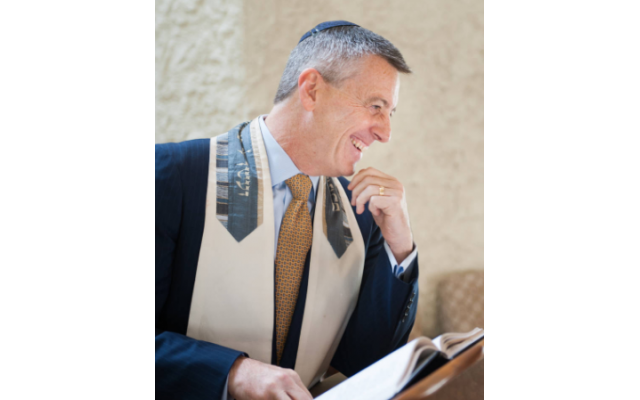Temple Sinai’s Ron Segal to Lead Nation’s Reform Rabbis
On Monday, Temple Sinai’s Senior Rabbi Ron Segal will be installed as president of the Reform movement’s Central Conference of American Rabbis.

On Monday, Temple Sinai’s Senior Rabbi Ron Segal will be installed as president of the Reform movement’s Central Conference of American Rabbis. His two-year term as leader of the nation’s oldest and largest rabbinic organization caps an extraordinary career as leader of the Sandy Springs congregation.
During its 50th anniversary celebration, Temple Sinai is completing a successful $12 million fundraising drive, has designed an expanded pre-school facility that will provide a full day of care, and is about to embark on an extensive renovation of its front entry plaza.
Segal, who has been especially active in nurturing interfaith relationships in the community, has spent his entire 23-year professional career at Temple Sinai, becoming its senior rabbi in 2006. He credits what he describes as Temple Sinai’s “phenomenal clergy team and our lay leadership” for his ability to accept the challenging responsibilities of national leadership.
We caught up with Segal to learn about his new leadership role.
AJT: What have you learned at Temple Sinai as the senior rabbi that might help you in your new job?
Segal: Trying to remain above the fray is a really important lesson that I have continued to learn. There is in the world of synagogue life no shortage of noise, which can be distracting, and which can easily pull you in. Learning to discern when it’s essential to dive into the morass of an issue and when it’s critical to try and remain above the fray has been something that I’ve really tried to learn.
AJT: What would you say about the progress that the CCAR has made in making a place for women in the rabbinate?
Segal: I don’t think that there is any question that there’s good progress in terms of making a place for women and the recognition of women as our equals in every way, shape and form. We are really trying to do concentrated work in CCAR on how we change culture and address the issues which have alienated or subjugated or injured or objectified our women colleagues for decades.
It’s something I’m speaking about in my installation sermon, and I think it will remain important work for many years to come.
AJT: And what else are you talking about in your installation speech?
Segal: Well, I’m raising some questions about how we work collaboratively and more effectively with our other Reform partners. I think there is room for growth there. How we can better serve a much more diverse rabbinate than ever before. Today, one-third of the members of the CCAR are not in congregational roles. That’s a substantial number.
AJT: As you know, the idea of a temple or synagogue is changing. And how does the rabbi address those changes and how do you address the issue of innovation?
Segal: I would say that places like IKAR in Los Angeles, Romemu in New York, The Kitchen in San Francisco, Sixth and I in Washington and all of these other really successful non-denominational communities that have sprung up and been so successful is because they have all broken the mold of what traditional synagogue is. In my estimation, not enough synagogues are changing quickly enough. What does membership mean and what does it mean to be affiliated with a community?
I think that by and large, lay leaders look to rabbinic leadership to help shape and understand what those opportunities for change are. How do we continue to engage a population that is less and less interested in affiliation according, at least, to the old standards and old norms?
AJT: If you were to look ahead at this, the beginning of your term to the end of your term, what would you like people to have said about how you were as a leader nationally?
Segal: I hope in two years’ time that people will say that I was successful at helping our new chief executive transition to her new role. People will say in two years’ time that they sense progress and continuing forward momentum on the way in which our conference is working for things like pay equity and the fighting of gender bias and trying to advance those causes for women.
I hope that people will say that during these next two years there was more of a spirit of accessibility and engagement. And that there’s a re-enfranchisement, if you will, of those who might be feeling disconnected, at present, from the work of the CCAR.



comments